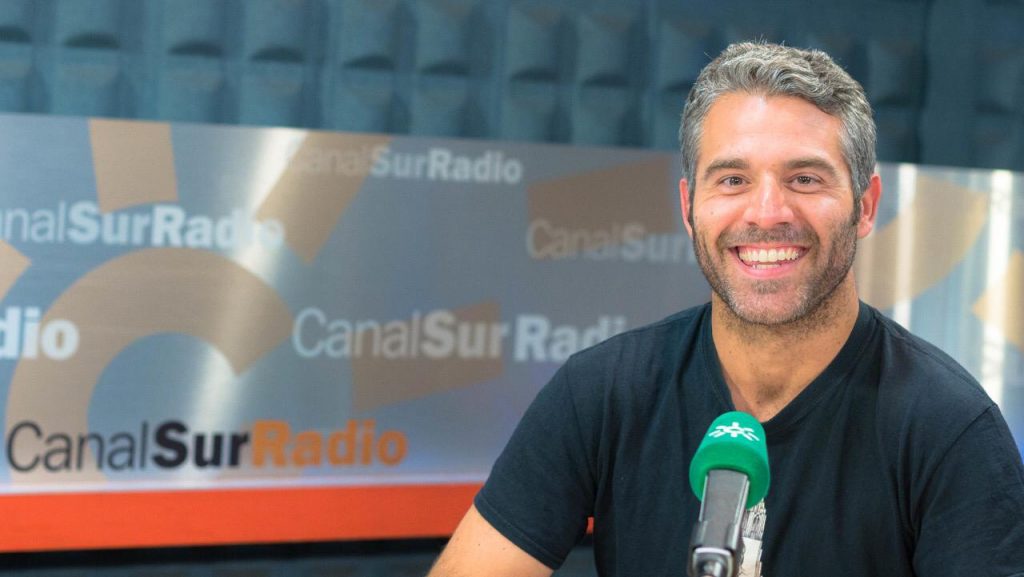Luis Márquez is one of the most popular television personalities in southern Spain. This journalist, born and raised in Seville, is one of the most familiar faces for customs and immigration officials in airports all around the world. The twists and turns of his professional career have led to him becoming one of Spanish television’s most experienced travel reporters. Panama, Colombia and Peru are the latest destinations that he visited in “Andaluces por América”, his latest peripeteia on television.
His life story is testament to this. He presented “Andaluces por el mundo” (Andalusians around the World) for four years — Spanish television’s defining travel programme — in which he told exciting and exotic stories about his experiences in 30 different countries around the world.
He continues to spend much of his life in airport departure lounges in his role as presenter of “Andaluces por América”, marking Canal Sur Televisión’s renewed commitment to travel journalism. Amongst these various projects, he found the time to win an Ondas award for his endeavours as a reporter on the documentary series “75 minutos” (75 Minutes) and to package up his experiences and reflections on travel journalism in a book entitled “Los años viajeros” (The Travelling Years).
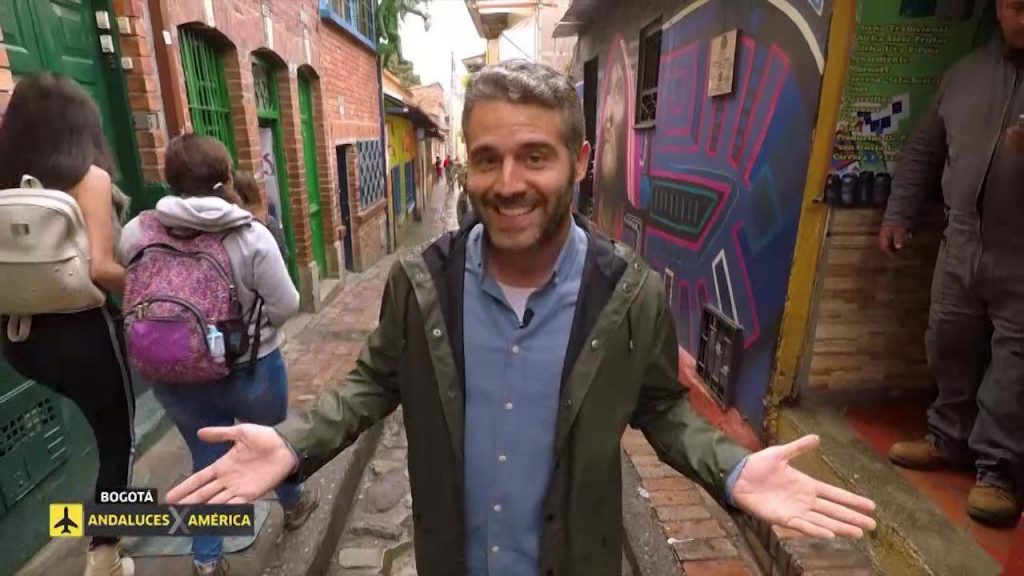
Flicking through his passport, you wouldn’t find a spare inch for any more stamps. He’s probably on first name terms with several immigration officials in various international airports. And he’s now ticked off more than 60 different countries…
For the sake of his health, let’s hope that no future studies find airport security scanners to be harmful to the physical integrity of travellers, as this journalist has almost lost count of the number of times that he’s passed through them in the dozens of different airports that he has visited.
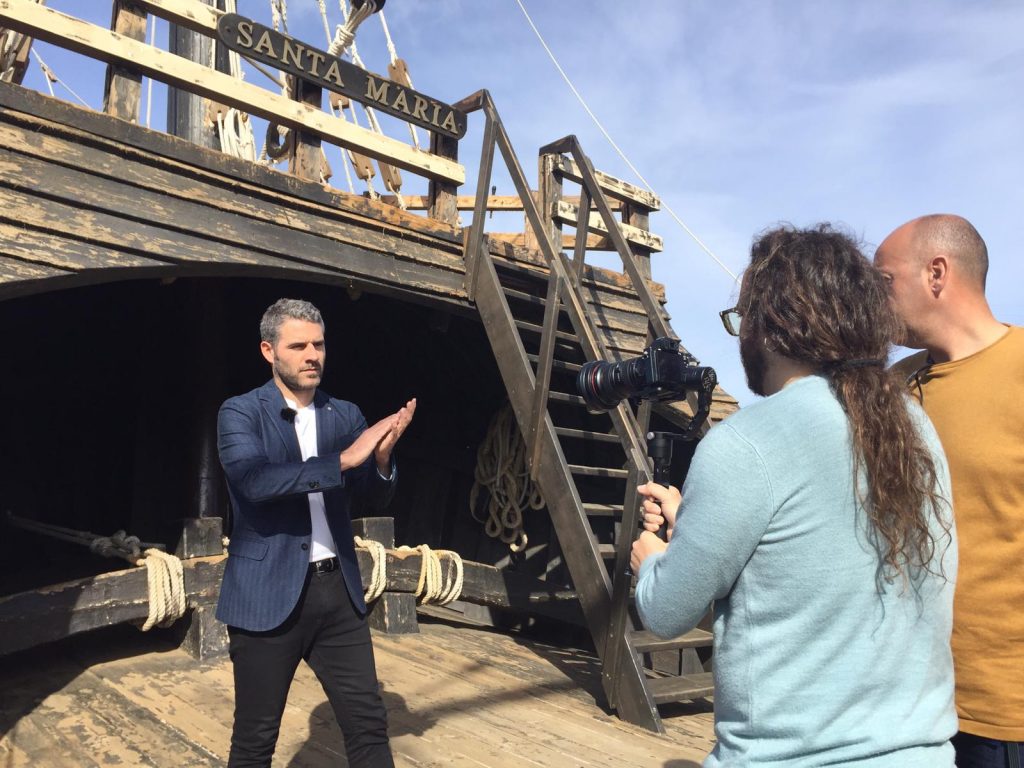
Leaving the exaggerations to one side, Luis Márquez is a true journalist with proven experience, who has spent the lion’s share of his professional career recounting tales on television.
After starting off working in the print media, he soon made the leap to the small screen by landing a role in “Andaluces por el mundo”, which is one of the best-loved and most watched programmes in southern Spain.
He spent 4 years telling the tales of Andalusians who had left their place of birth to start a new life abroad, spanning several hugely successful and well regarded seasons.
Márquez then took the step into documentary making, also for Canal Sur Televisión, swapping airports and faraway locations for Andalusia’s most authentic spots in “75 minutos”.
During this stage of his career, he never neglected his inner traveller, finding the time to write his book “Los años viajeros” that recounted his most notable experiences during his time as a reporter on “Andaluces por el mundo”.
This book is more than a simple recollection of anecdotes, delving into the social and political realities of countries such as the Dominican Republic, Senegal, Palestine, Northern Ireland and Egypt.
Luis Márquez’s latest television adventure is called “Andaluces por América”, in which he packs his bags once more to travel around the Americas.
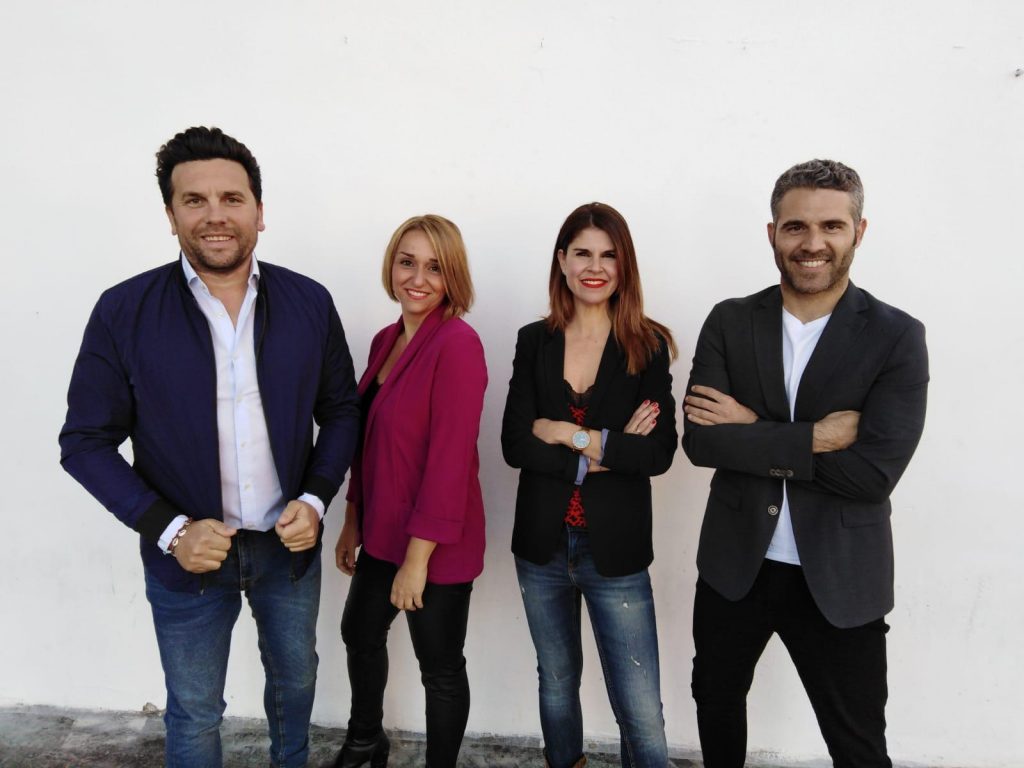
Every Sunday at 9.40 p.m. on Canal Sur Televisión (Spain), Luis and famous journalists Rocío Vicente, Manu Martínez and Rocío Romero tell the tales of four Andalusians who, one day, had to pack their bags and leave, ending up making a life for themselves on “the other side of the pond”, thousands of miles from their homeland.
Santiago (Chile), Miami, Buenos Aires, Cancún, Lima, Santo Domingo, New York, Bogotá, Panama, San José (Costa Rica), Montevideo, Mexico City and Salvador de Bahía are just a few of the destinations that have been covered by the programme.
The first season was very well received, with a second season currently being filmed, which is due to be screened shortly.
How did your vocation for journalism come about? Do you think that there is still room for vocational professions in such a highly commercialised consumer society?
When I was very little, my Dad got me interested in radio broadcasts, and when I had eight years old, I started sleeping with a radio under my pillow. I always wanted to be a football commentator, but when I grew up I soon realised that the best stories were found elsewhere; luckily, my work in the printed press and on TV programmes has allowed me to travel around, telling the tales of many different lives around the world. Vocational professions will never die out, but they’re increasingly poorly paid.
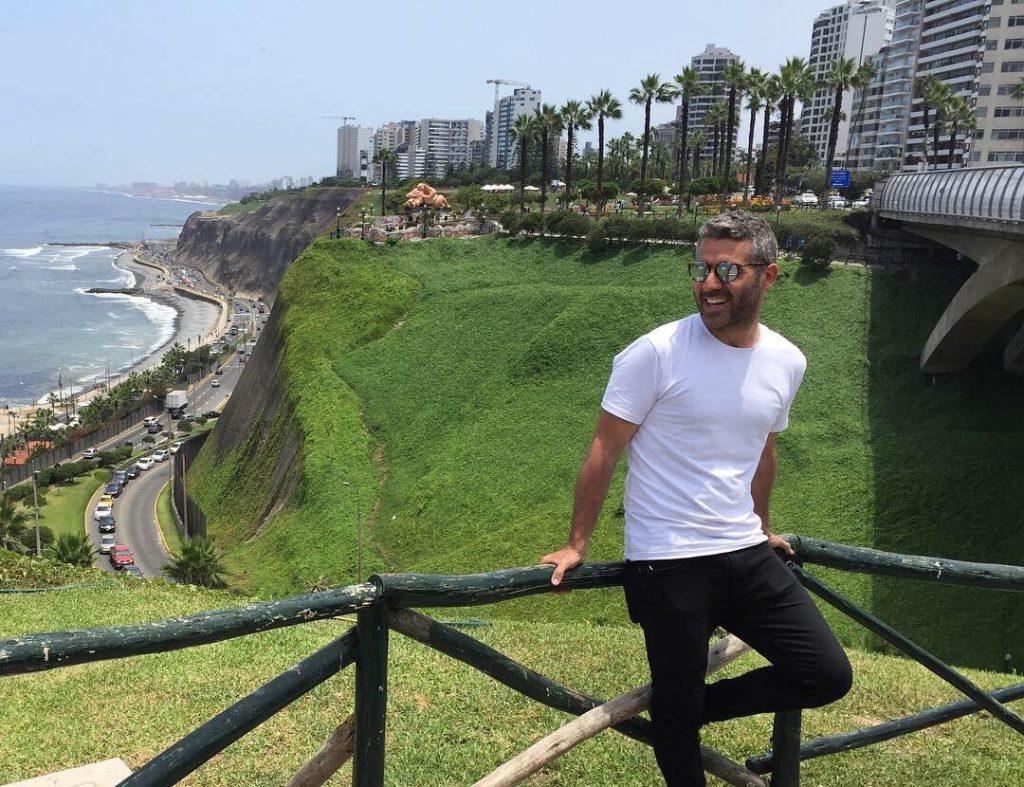
Your career has always been tied to the world of television, but your travel documentary series “Andaluces por el mundo” led to you becoming one of southern Spain’s most recognisable reporters. What was this time of your life like, from a professional and personal perspective?
I always say that I started working on that programme as a boy who still lived with his parents and didn’t even have a passport, leaving a mature man with grey hair and a passport full of stamps. It completely changed me. Every single person that you meet, who belongs to a culture other than your own, gives you so much in terms of a professional and personal awakening. Each trip, with all the work that it entails, is like a Master’s.
Do you have a rough idea of how many kilometres you’ve travelled during your professional career? How many times do you think you’ve travelled around the world?
When working on “Andaluces por el Mundo” I travelled to 30 different countries, and on “Andaluces por América” I’ve already been to 3…and these trips take a long time. I’ve not done the sums, but in seven years travelling the world I guess I must have been around it several times. I’ve racked up enough Iberia loyalty points for the odd free flight, that’s for sure…
I guess you’ll have spent hours and hours waiting in airport departure lounges around the world. What sort of music do you listen to when you’re trying hard not to lose your patience?
I love the indie scene, although this genre is starting to fade away. I like listening to electro-pop on the outbound journey, and something more relaxing on the inbound one…
Off the back of the successful “Andaluces por el mundo” on Canal Sur Televisión, you published your first book entitled “Los años viajeros”. What is the reader going to find in these pages?
They’ll find ten comprehensive reports about ten different destinations, where many things have happened and continue to happen. Human tales that give the reader an insight into the culture and history of the Dominican Republic, Senegal, India, Qatar, South Africa, Palestine, the United States of America, Northern Ireland, Norway and Egypt.
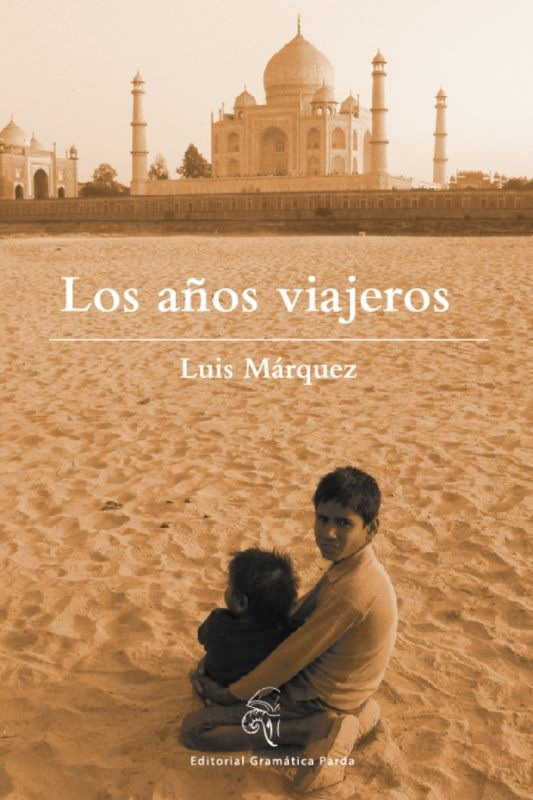
Which stories left the biggest impact on you when writing “Los años viajeros”?
For example, I try to explain the ongoing conflict between Israelis and Palestinians by telling the tale of Dunia. She is a Palestinian girl from Jerusalem who is going to marry her boyfriend, a Palestinian from Bethlehem, who isn’t allowed to cross the wall to visit her at her house. I, on the other hand, barely knowing her, am free to do so. And I reflect on the injustice of the situation. Beyond the armed conflict, there are hundreds of small injustices in this part of the world on a daily basis.
You’ll never have been asked these questions before…which cities would you recommend visiting? Do you ever dream about having stayed in a particular city forever?
That’s the first time! Sometimes we seem like travel guides or tellers of professional battles, but honestly, it’s been an absolute pleasure. Cities I would recommend living in include Cape Town, San Francisco and Berlin. I love all three of them. Cities where I could stay for the rest of my life? There are so many places, ranging from a small island just off the archipelago of San Blas in Panama to Copenhagen (if it was summer all year-round). And, of course, New York.
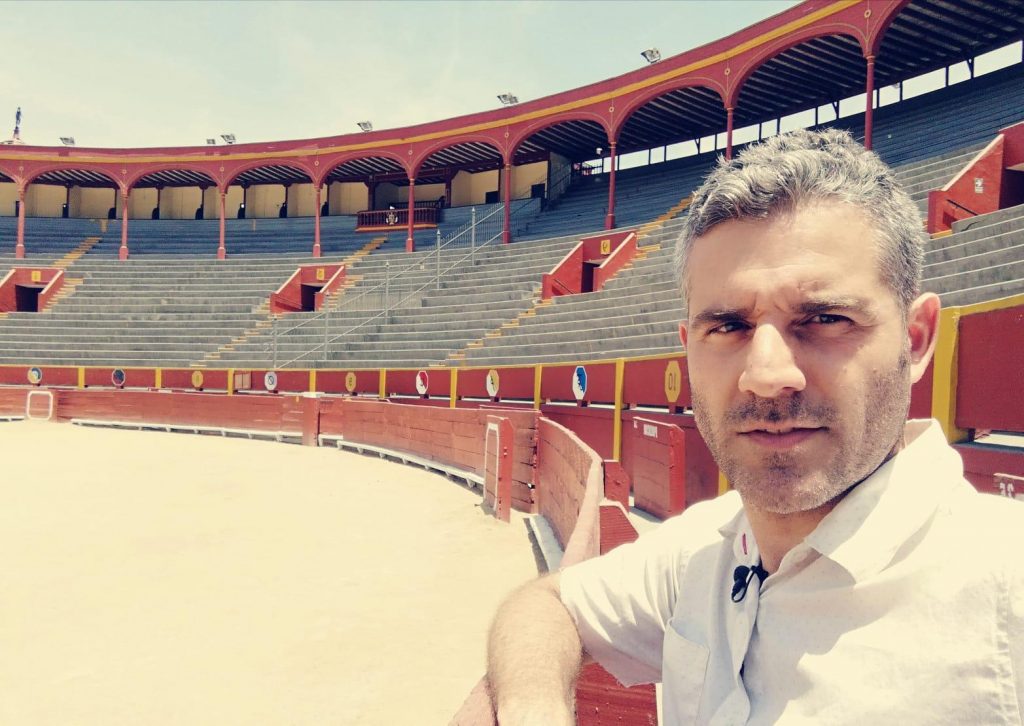
You’re bound to have heard all sorts of tales during your travels, ranging from those filled with happiness and positivity to others that are tough, tainted with harshness and misery. Which stories have left the biggest impact on you so far in your experience as an international reporter?
The story of Andy, a twelve-year-old boy who lives in a slum in Santa Domingo surrounded by prostitutes and murderers, who has just lost both his parents. He took responsibility of his two younger siblings; despite his young age, the effects of his forced maturity, congenital wickedness and an innate sense of survival can be seen in his prematurely ageing face. Growing up in these conditions makes you grow up fast, locked in the labyrinth of life, which is almost impossible to escape from. Just one example of the millions of children who have to live like this around the world.
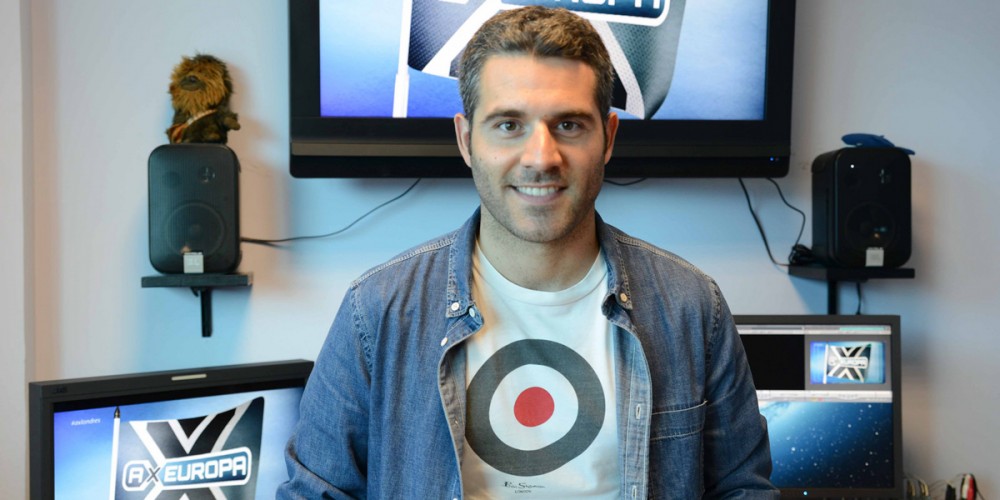
Your next television role was in the documentary series “75 minutos”, another of the most popular television programmes in southern Spain. Its no wonder that, in 2013, you were recognised with an Ondas award: one of the most prestigious prizes in Spanish television. Here, you swapped more exotic international destinations for the most authentic spots in Andalusia. Tell us a bit about the spirit of this programme, and what effect it had on your career…
In the context of the economic crisis, the programme took me to the streets of Andalusia to talk with people from all walks of life, removing their masks. Everything was completely raw, from the interviews to the production of the programme itself. We focused on immersing ourselves in the stories, rather than merely telling them. The reporter felt, and suffered, alongside the protagonist. An extremely personal form of journalism which connected perfectly with the audience. The current format is slightly different than when I first started, as after 5 years of showing the programme you’ve got to freshen things up a bit. However, it still respects the essence of the original “75 minutos”, and has some nice new features too.
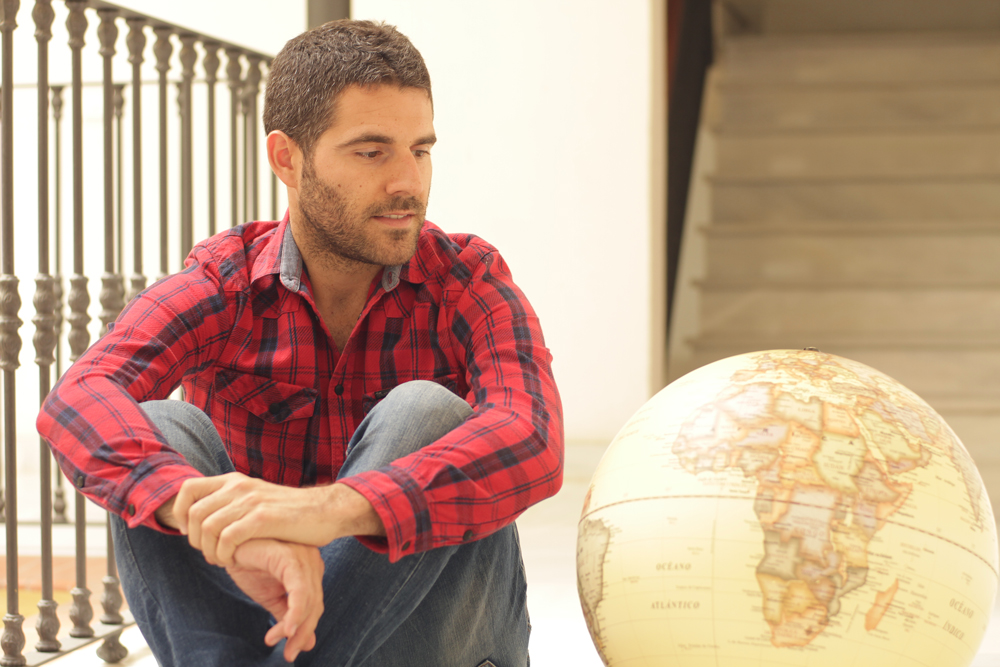
What’s next on the horizon for you?
Thankfully “Andaluces por América” has been very well received, enjoyed by critics and the audience at home, so we’re currently preparing the next trips and planning future destinations. Let’s see if I get any spare time in this hectic travel schedule that we’re currently putting together. In any case, it will be a pleasure to keep travelling and meeting people from all over the world, in the eyes of my fellow Andalusians.



